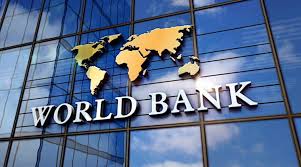The World Bank has cautioned that Ghana’s poorly performing State-Owned Enterprises (SOEs) especially in the energy and agriculture sectors remain a major threat to the country’s fiscal stability.
In its latest economic report, the Bank urged urgent reforms and stronger oversight to safeguard long-term fiscal sustainability. It flagged persistent structural weaknesses, including a low tax-to-GDP ratio averaging 12.5% between 2020 and 2024, far below regional peers driven by VAT exemptions, tax evasion, and underused extractive revenues.
The report also observed that election-year spending and arrears triggered fiscal slippages in 2024, though the first half of 2025 saw improvements through tighter expenditure controls and the adoption of new fiscal rules.
On public debt, the Bank said Ghana’s debt outlook is sustainable in the medium term, provided the country completes its external debt restructuring and sustains fiscal discipline. Key milestones include the signing of a Memorandum of Understanding with official creditors in January 2025 and the completion of a Eurobond exchange in October 2024.



















